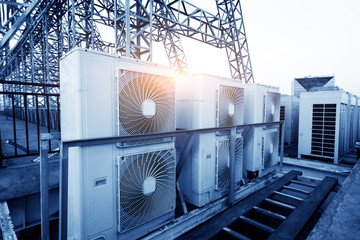Most homeowners know what HVAC is and how it works, but few understand how an entire HVAC system works. Many have even never purchased a new HVAC system or replaced old equipment. However, the importance of an HVAC system cannot be overstated. Here are a few things to know about HVAC systems and what they can do for your home. They will help you choose the right system for your home and ensure maximum efficiency and comfort. If you’re considering a new HVAC system, read on to learn more about the benefits of each.

Professional HVAC engineers are ASHRAE members and maybe EPA or local certified. Members of the organization must be flexible and able to travel to job sites. HVAC workers should consider a variety of safety standards and security measures, which include proper clothing, safety gear, and the use of HVAC tools and equipment. HVAC workers can be self-employed or work for a contractor. Whether you are a contractor or a professional, has various skills and experience in the field.
Buildings containing multiple floors, rooms, or multi-level spaces require different heating and cooling systems. These systems can be large or small. To design a system for a small building, you’ll need to estimate its capacity. Once you have that information, contractors can design and install the system, choose appropriate refrigerants, and select components. Mechanical engineers and building service designers also analyze HVAC systems. Specialist mechanical suppliers and contractors install and fabricate HVAC systems. Building permits are typically required for most types of building construction.
HVAC systems can be divided into several types based on the process they use to transfer thermal energy. Some use air or water, while others use a combination of both. Central HVAC systems combine devices such as water-source heat pumps, heating and cooling panels, and air-conditioning units. These components are connected to an air-handling unit, which includes supply and returns air fans, a humidifier, and a cooling and preheats coil.
An HVAC technician’s typical day starts early in the morning, gathering tools and equipment for the day. They may have to climb ladders, crawl in small spaces, and even climb rooftops. This type of work requires a diverse range of skills and special equipment, as well as an innate sense of curiosity and a desire to learn. If you’re interested in an HVAC career, make sure to start your career with formal education. You’ll be happy you did!
A home’s HVAC system is key to maintaining a comfortable temperature and humidity. Whether you live in an old-fashioned home that allows natural ventilation, or a contemporary building with tighter-sealing requirements, you’ll find that mechanical ventilation is vital to home comfort. You should also be aware that natural ventilation is a big part of maintaining a comfortable temperature in your home, so it’s crucial to consider how it can benefit your home’s comfort.
Choosing the right HVAC system for your home is vitally important. Selecting an HVAC system for your home can help you avoid unwanted heat and humidity in your home. Not only will this improve the air quality in your home, but it can also reduce the risk of respiratory and cardiovascular problems. If you’re concerned about air quality in your home, you can use a whole-home humidifier or dehumidifier to improve the humidity and reduce the risk of disease.
A home’s HVAC system is a complex system that has many functions. It works by changing outdoor air conditions and adjusting the temperature and humidity levels inside the home. Fresh air is brought into the home through ducts or an exhaust system, which then distributes the air into occupied spaces. If the system fails to perform its function, you’re left with an uncomfortable atmosphere. A properly functioning HVAC system can prevent many problems and save you money in the long run.
While most states do not require a specialized HVAC license, many employers require employees to have post-secondary training. The Career College offers an HVAC program that can prepare a student for entry-level positions in the HVAC industry within ten months. The program covers a variety of subjects, including basic electricity, motors, refrigeration, duct design, special equipment, and troubleshooting. Some apprenticeship programs require a longer amount of training.
